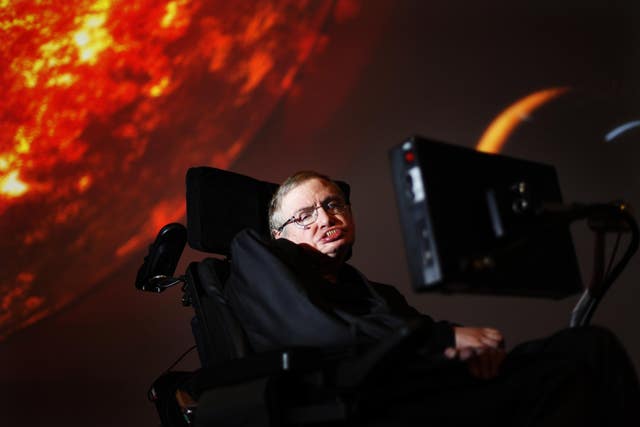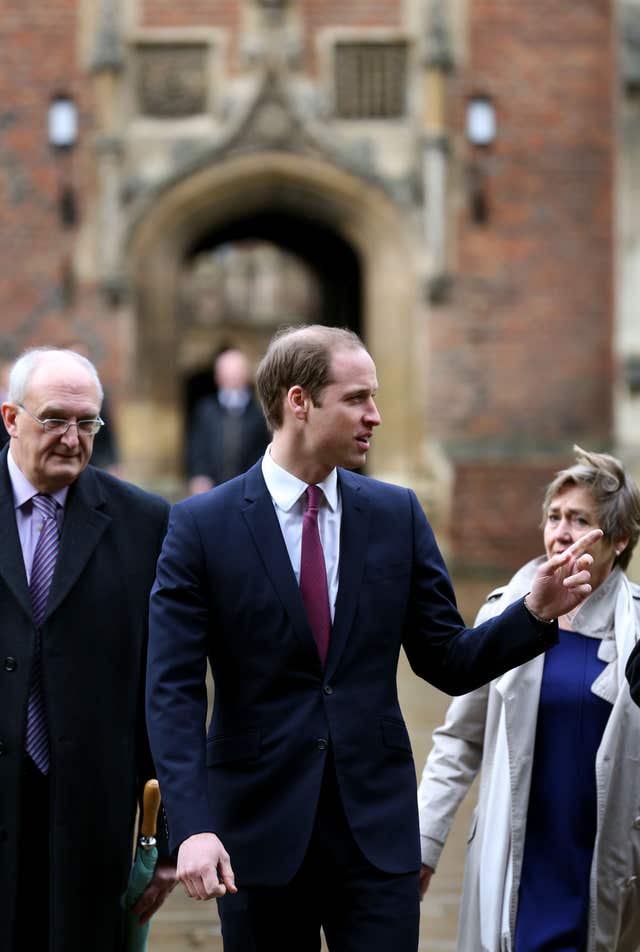Professor Stephen Hawking may have been one of the world’s most eminent scientists but one thing remained a mystery to him – women.
The physicist, who died in the early hours of Wednesday at the age of 76, symbolised the upper reaches of the power of the human mind.
But once when asked what he thinks most about during the day, he said: “Women. They are a complete mystery.”

But he went on to become one of the world’s most renowned physicists, publishing three best-selling books, including the well-known A Brief History Of Time, and has been awarded with a number of honorary degrees, medals, and a CBE in 1982. He has also been married twice and has three children.
Prof Hawking made his comment about women in an interview with New Scientist to mark his 70th birthday on January 8 2012.
He also told the magazine his “biggest blunder” was thinking that information was destroyed in black holes.
“This was my biggest blunder, or at least my biggest blunder in science,” he said.
He was also asked what he would study if he were a young physicist starting out today, to which he replied: “I would have a new idea that would open up a new field.”
The interview came a week after Prof Hawking’s technician Sam Blackburn, responsible for the technology that allowed him to communicate, told New Scientist the physicist’s facial muscles that controlled his voice synthesiser were fading and new technology would be needed.

Prof Hawking marked that milestone birthday with a speech at a public symposium at the University of Cambridge.
He was then the director of research at the Department of Applied Mathematics and Theoretical Physics at the university, where he also founded the Centre for Theoretical Cosmology (CTC).
Prof Hawking previously held the Lucasian Professorship of Mathematics at Cambridge, a post once held by Isaac Newton.
The symposium, organised by the CTC in conjunction with technology company Intel, was called The State of the Universe.
Speakers included the Astronomer Royal Lord Martin Rees; Professor Saul Perlmutter, winner of the 2011 Nobel Prize in Physics; and theoretical physicist Professor Kip Thorne, from the California Institute of Technology – a long-term collaborator with Prof Hawking.
Justin Rattner, chief technology officer at Intel, who introduced Prof Hawking’s speech, said: “With more than half a century of remarkable research Professor Hawking has continually pushed the boundaries of humankind’s understanding of the cosmos.
“More than any other scientist in recent history, his ability to engage people in the process of scientific discovery through his books, lectures and television programmes has opened countless inquisitive minds to a universe full of possibilities.”
Prof Thorne said: “When Stephen lost the use of his hands and could no longer manipulate equations on paper, he compensated by training himself to manipulate complex shapes and topologies in his mind at great speed.
“That ability has enabled him to see the solutions to deep physics problems that nobody else could solve, and that he probably would not have been able to solve himself without his new-found skill.”

“It would always be appropriate for Cambridge to celebrate such a person, and in Stephen’s case there is even more reason to mark a long life that has transformed our perception of the universe,” he added.
Prof Hawking’s death was announced in a statement by his children Lucy, Robert and Tim, who said he died peacefully at his Cambridge home.
“He was a great scientist and an extraordinary man whose work and legacy will live on for many years,” they said.
“He once said, ‘It would not be much of a universe if it wasn’t home to the people you love.’ We will miss him forever.”






